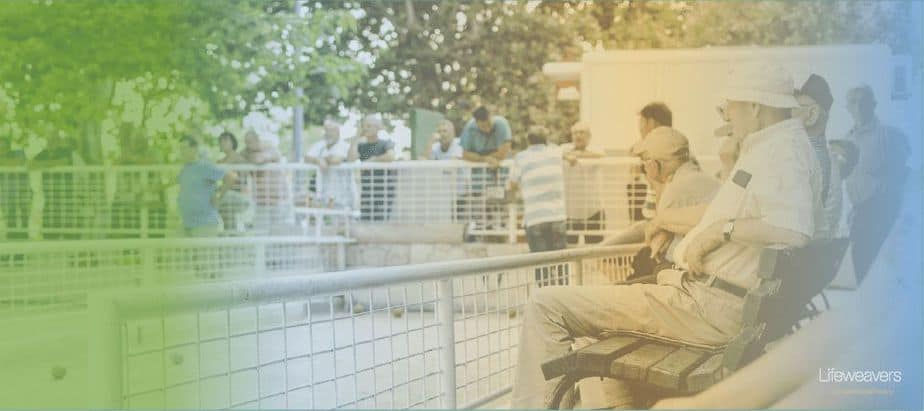Leisure activities are those we choose to participate in during our spare time, when we are not involved in work or self-care activities. These activities tend to be ones that engage our interests, we enjoy, and find meaningful (Majnemer, 2009). There is evidence that participating in leisure activities has a number of benefits:
- We feel happier
- It is good for our physical and mental wellbeing
- It leads to better social supports
- It helps us cope with life stress
So the question is, if it has so many benefits, why isn’t leisure time given as much attention as it should be?
Our Fast Paced Society
We exist in a culture that places great emphasis on high productivity, where we are constantly “busy”. If we are not busy, sometimes we even think we must LOOK busy. How many times has someone asked if you want to do something after work, or even take your full lunch break and you respond with “I don’t have the time”? Perhaps you have family responsibilities or chores you feel you must prioritise and social time is forgotten. Perhaps you feel it is “selfish” to take time for yourself and you should be prioritising other things. These attitudes certainly exist in Singapore, and Singaporeans have been reported to sleep the least and work some of the longest hours in the world (Todayonline). Constantly working longer hours means less time for leisure and social opportunities, and this equates to less time to rest, reflect, grow and adapt.
What we want to emphasise here is the negative impact of constantly being on the go and not taking time for our own interests. We understand this can be extremely challenging, but existing at such a pace is simply unsustainable in the long term.
What is most beneficial to a person is finding a form of “occupational balance”. This means finding the right balance between self care, productivity (including work) and leisure occupations that works for you. Neglecting to acknowledge an imbalance can lead to negative effects on our physical and mental health, some of which are below.
- Increased risk of stress
- Increased risk of depression and anxiety
- Increased risk of physical health problems
- Lack of meaningful social contact and relationships
- Increased likelihood of poor coping strategies e.g. use of alcohol, drugs and smoking
- Increased risk of heart problems
- Lack of physical exercise and weight gain
- Fatigue
That’s a big list right? And not only is this a big list, consider how these things will affect your productivity over time. A lack of balance is counterintuitive, which is why we really should be paying more attention to how we use our time in all areas of life if we want to maintain our health.
If you recognise that you have a lack of downtime and leisure in your life, you can do something about it. We at Lifeweavers specialise in analysis of activity and how a person is using their time. We can help you look at your daily routine and occupational demands to make things work better for you, so get in touch!
Leisure as an Essential Rehabilitation Tool
The focus on leisure is not just important to those of us who are able bodied, but also is essential for people with illnesses, injuries and disabilities. Evidence suggests that people with disabilities are much less likely to engage in meaningful activities in line with their interests. Choices of leisure activities for people with physical and intellectual disabilities can be extremely restricted.
Client centred practice is a core value here at Lifeweavers, and we therefore consider the whole individual and their needs during the rehabilitation process. Traditional approaches have focused mainly on impairments and functioning, however we feel it is necessary to go beyond this if we are taking a truly holistic approach by also exploring a person’s interests, leisure and social needs.
An example of this could be a person needing to improve self care skills such as washing and dressing following an injury or illness. Washing and dressing are everyday occupations which a person needs to engage in as part of their day, however if we only focus on the achievement of self care itself, we may come up against a problem – motivation. Why should this person get up and go through their self care routine when it is so hard/painful/just downright boring? However if we also consider a person’s interests including their leisure and social needs, the rehabilitation process may become less of a chore, and more of a means to achieving an important goal.
Let’s say you used to really love meeting with friends at your favourite café on a Wednesday afternoon, by aiming for this outcome as a client centred leisure goal you could achieve the following:
- Learning to manage your self care more independently
- Improve your stamina when washing and dressing
- Increase your confidence in visiting the community again
- Rekindle your social connections or build new ones
- Reduce the likelihood of depression and anxiety
…and this is just from one leisure focused goal! Leisure can be used as an agent of change for the individual, having positive effects mentally and physically.
If you have a disability (or care for someone who does) and feel you would like to increase your social connections and explore your interests, get in touch with us here at Lifeweavers and we can help you achieve your goals.
SHARE THE ARTICLE WITH ANYONE ON THE PLATFORMS BELOW:







